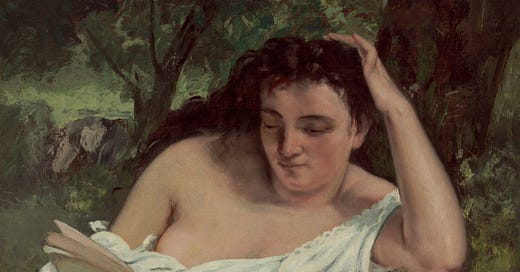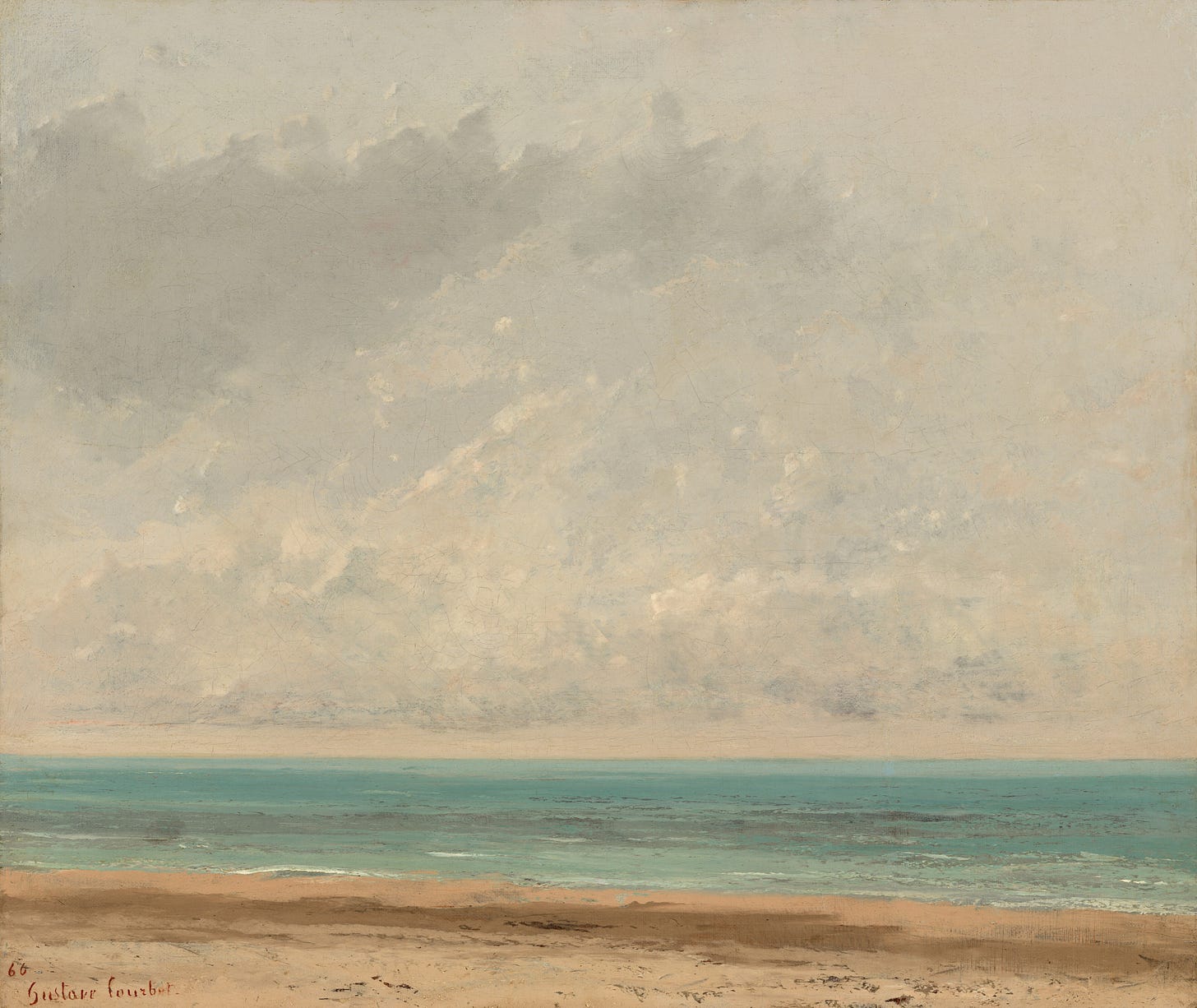[Image: “A Young Woman Reading,” 1866/1868, Gustave Courbet. Courtesy of National Gallery of Art, Washington, DC, Chester Dale Collection. In the public domain.]
Presented without (much) comment:
1. The Sound When the Bubble Pops
Here Burgis paints an unsettling picture of what it can be like to be a part of the commentating class, constantly asked for your “take” when you would instead like to have something to give:
My overriding desire when something confusing happens in the world or in my life is to go sit alone in the candlelit nave of my church for an hour. Or a week. And there are many things that I’d like to sit there for a year first, pondering, before I have anything worthwhile to say. If I ever will.
I’m certainly not arguing that understanding is not important. It is. But the attempt at understanding is not being accompanied by, or led by, contemplation. The entire world is conspiring to take that away from us.
….
I now believe that when the content bubble bursts, it will sound like a lonely person crying alone, weeping over lost time and love.
2. The Terror of Contemplation
https://www.americamagazine.org/faith/2023/03/01/contemplation-first-sunday-lent-homily-244826
Fr. Klein, homilist, writes about why our fear of going deeper in prayer paradoxically keeps us from overcoming both that and a host of other fears:
prayer only becomes a consolation when it becomes contemplation, a higher level. What is contemplation? It is still prayer, but here you ask nothing of God by way of petition. You desire only one thing: to see something of God, to experience God, to be in God’s presence. Contemplation is communion with God.
To contemplate, you must climb a mountain. You must move, however momentarily, off the lowlands of daily life. Contemplation typically occurs when we make a conscious decision, such as visiting a church or sitting in a particular chair, to recollect ourselves and to look for God. There are many ways to climb the mountain. They all involve a climb out of the lowlands.
3.
https://www.commonwealmagazine.org/the-grace-of-wholeheartedness
Zena Hitz, author of Lost in Thought, traces the path of her discovery of the whole Christ—who led her to reject hollow intellectual performance in favor of contemplative joy and delight in learning:
I knew people far more intelligent than I was who denied the existence of everything except indivisible corpuscles, or who thought that if I could have had pork chops for breakfast, there was a real place where I did have pork chops for breakfast. Why shouldn’t I believe in a three-personed God, born as a man to a virgin, who died, was resurrected, and returned to us under the forms of bread and wine? ….
I was restless, bored, and frustrated with the tedium of a moderately successful academic career. I had had enough of teaching for money, studying for status, loving in order to advance myself. I was tired of using myself and being used; I wanted to live a life that could not be bought or sold.
That’s all for this week. I’m in the depths of short story revision and wishing I were here instead:
[Gustave Courbet, “Calm Sea,” 1866, courtesy of National Gallery of Art, Washington, DC, Collection of Mr. & Mrs. Paul Mellon. In the public domain.]
See you in April.






